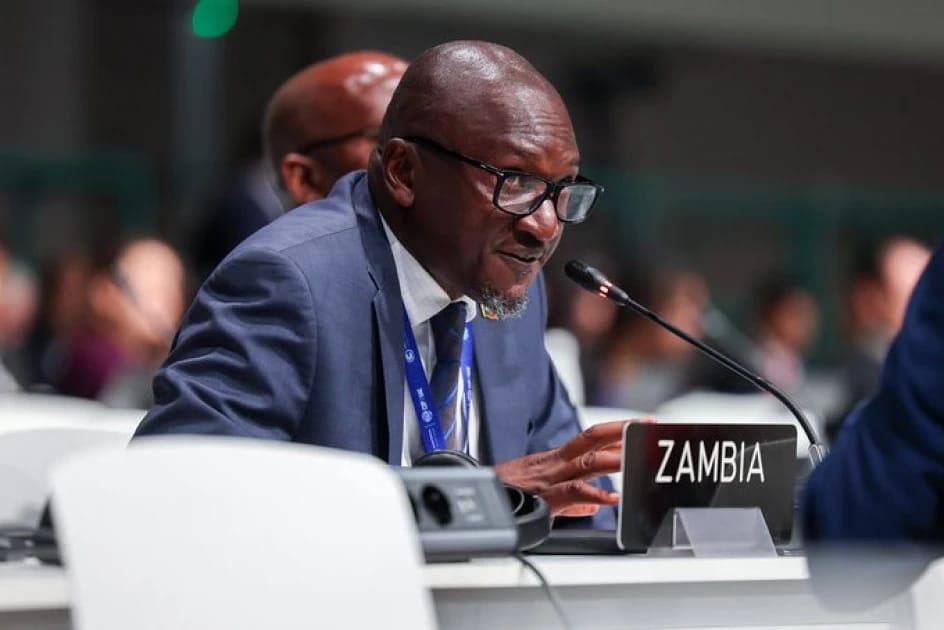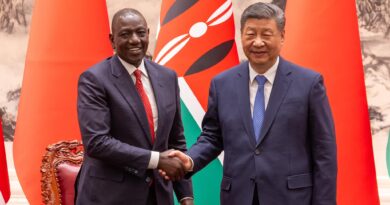Global Goal on Adaptation Framework Must Be Met, Says Hon. Collins Nzovu at COP28
The Minister of Green Economy and Environment, Hon. Eng. Collins Nzovu MP, leading the African Group of Negotiators on Climate Change (AGN), delivered a powerful statement at COP28 in Dubai today, emphasizing Africa’s unwavering stance on the need for a robust Global Goal on Adaptation (GGA) framework.
In his second press statement, Hon. Nzovu asserted that Africa would not accept any GGA framework without tangible means of implementation from developed countries, especially concerning targeted goals.
“If we are serious about saving lives, livelihoods, and protecting ecosystems, then the GGA framework must have ambitious, time-bound targets with clear means of support for implementation,” he declared.
The minister underscored the significance of adaptation for Africa, making it clear that the continent’s top priority is a comprehensive GGA framework.
He insisted that the agreement should incorporate both thematic and dimensional targets, emphasizing measurability and time-bound objectives for effective progress tracking.
“We demand a standing agenda item on GGA and further work on metrics and indicators for tracking progress, including input from the IPCC at a workshop and a longer-term task force for adaptation beyond the GGA framework,” Hon. Nzovu stated.
Highlighting the strain on budgets and the increasing burden of debt faced by African governments, the minister noted that despite committing significant domestic resources to adaptation, only scaled-up, adequate, and predictable international public finance could close the widening gap.
Hon. Nzovu stressed that means of implementation are crucial for realizing the GGA and its framework. He called for strong language on the Global Stock Take (GST) in the GGA outcome, emphasizing its critical importance in assessing collective progress on implementation.
Addressing the Global Stock Take, the minister urged the outcome to recognize Africa’s Sustainable Development and Poverty Eradication imperatives, aligning with “Agenda 2063: The Africa We Want.”
He emphasized that the GST outcome must promote equity and fairness in policy space allocation, ensuring a just, equitable, and orderly energy transition based on differentiated pathways to net zero and fossil-fuel phasedown.
In conclusion, Hon. Nzovu underscored Africa’s role in global energy production, holding 6 percent of known global reserves of oil and gas and accounting for about 12% of global production.
He asserted that significant concessional financial support is essential for Africa to transition away from fossil fuels successfully.
The minister’s statement positions Africa as a strong advocate for ambitious and actionable global climate goals, urging developed nations to fulfill their commitments to support vulnerable countries in the face of climate change.



